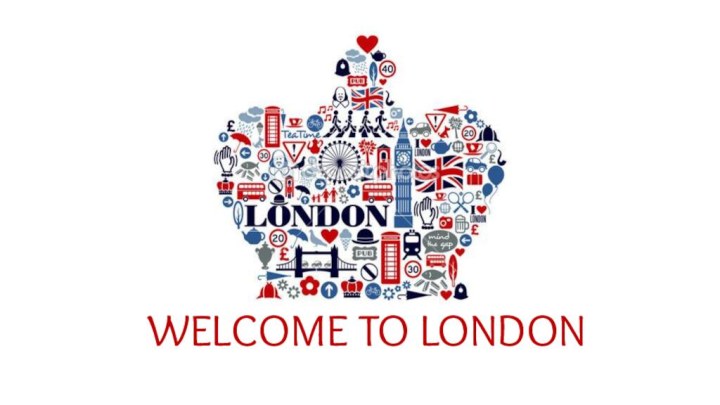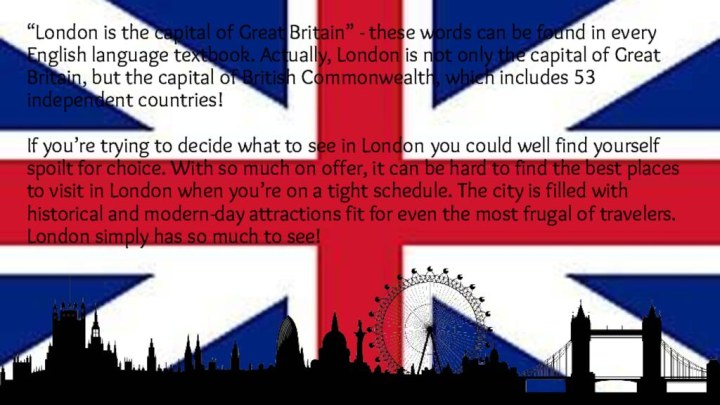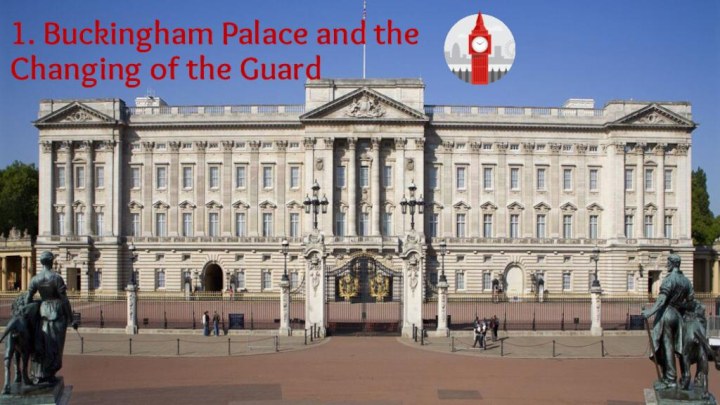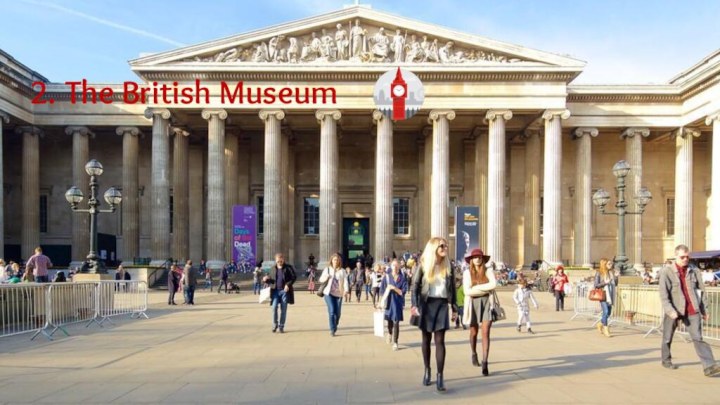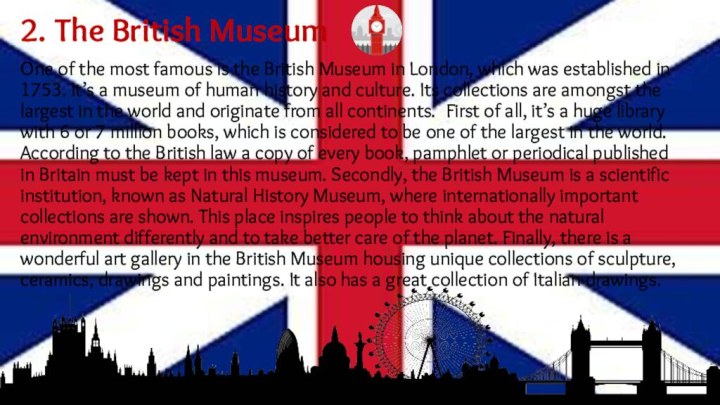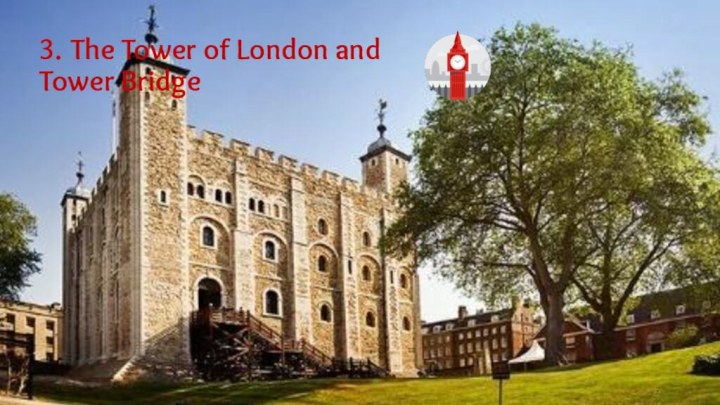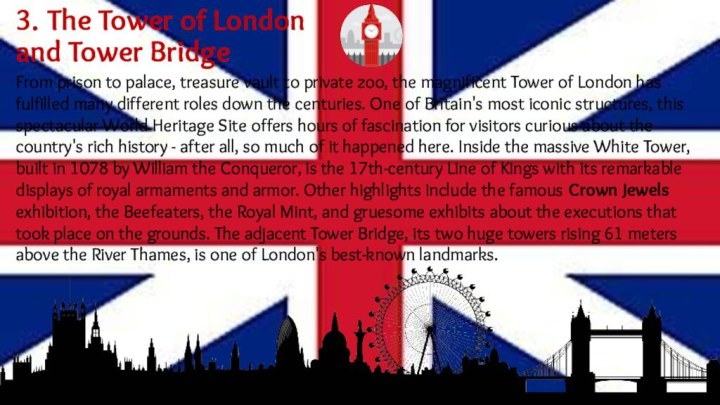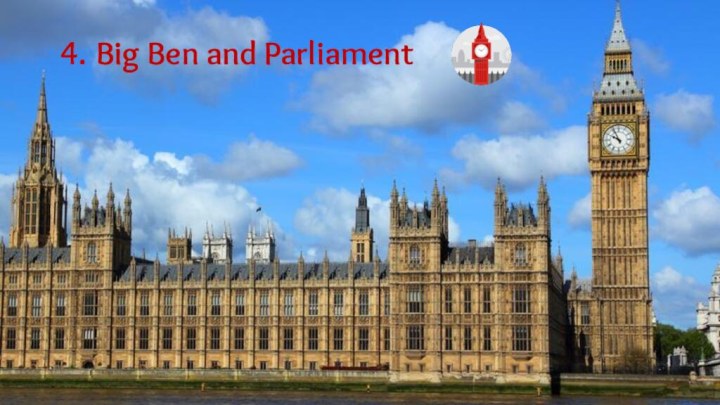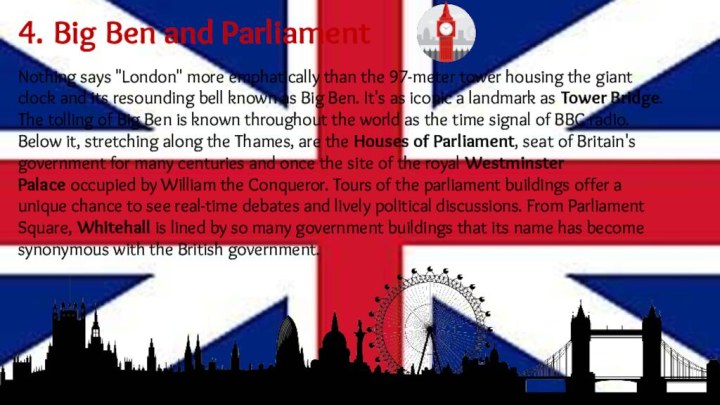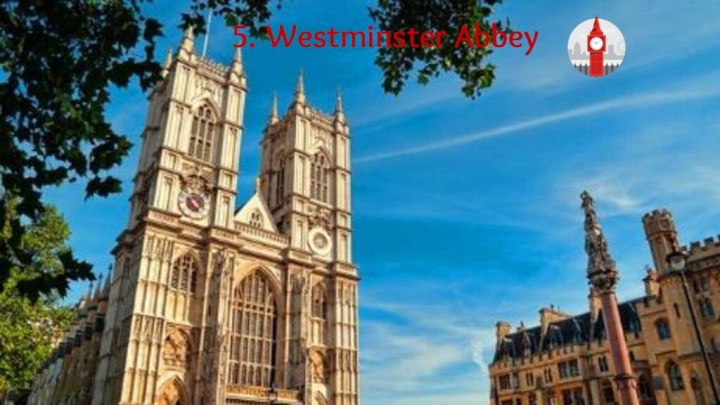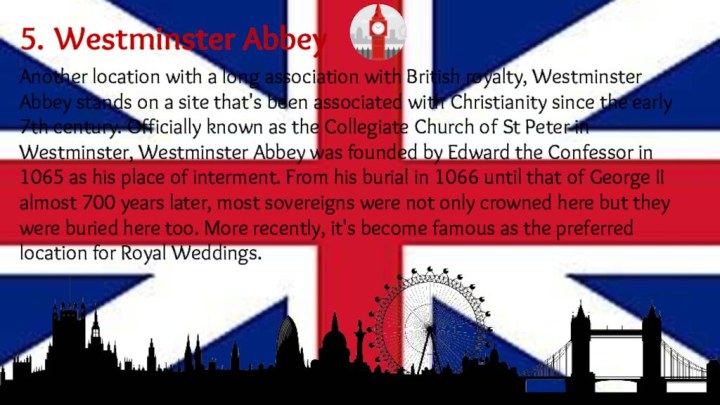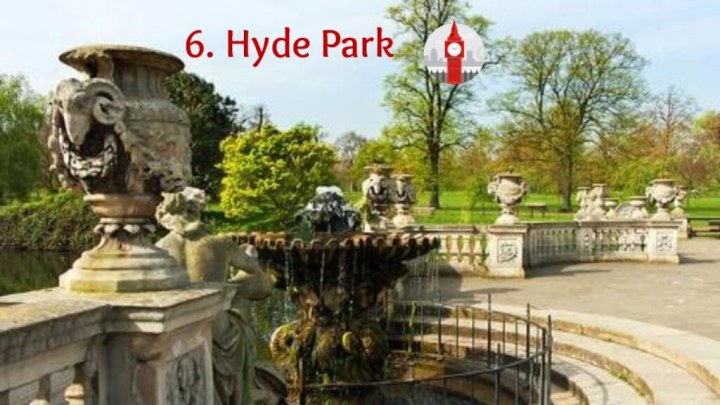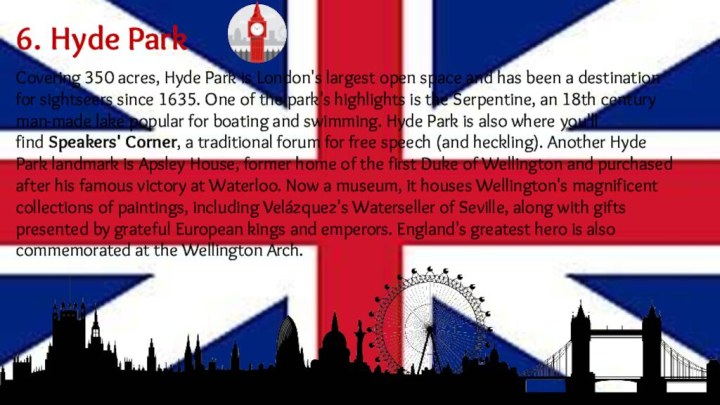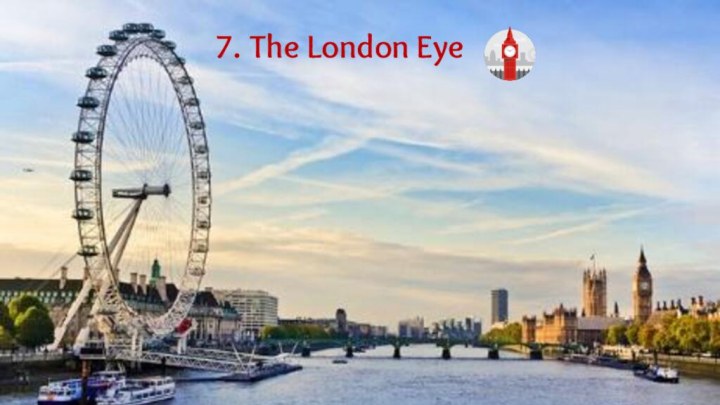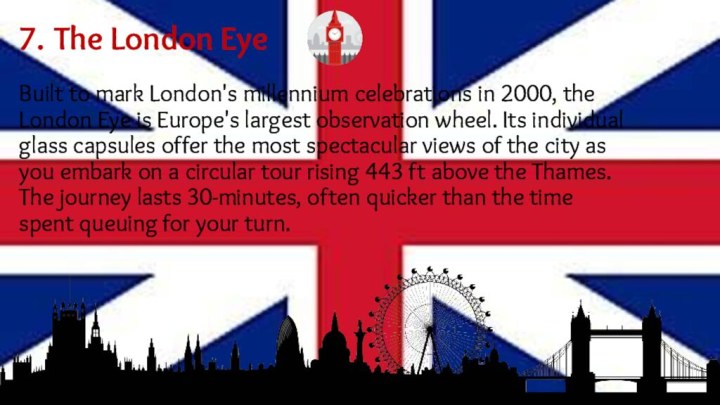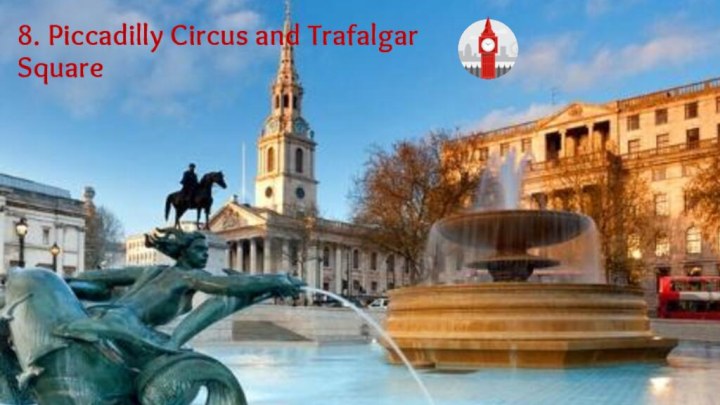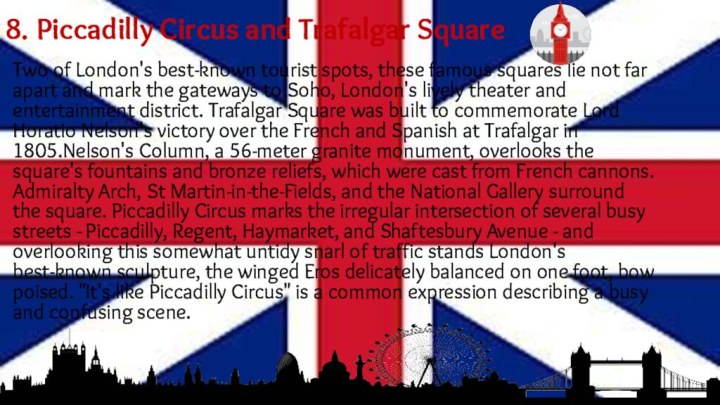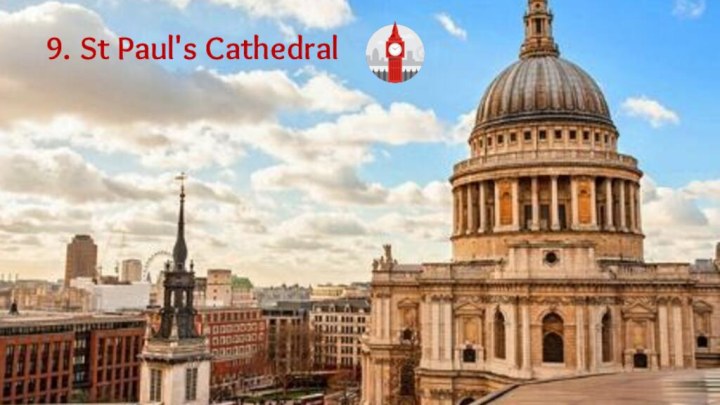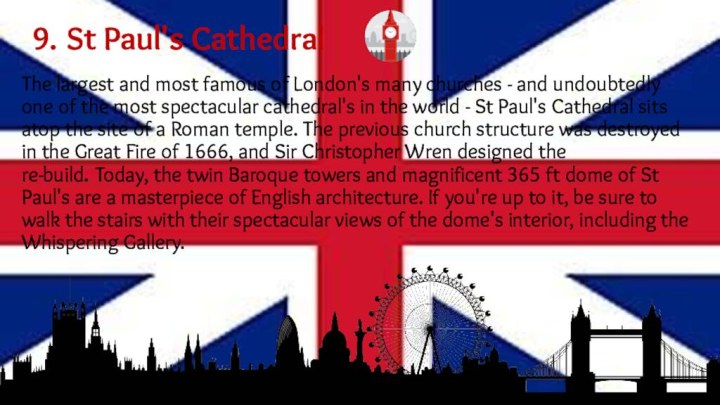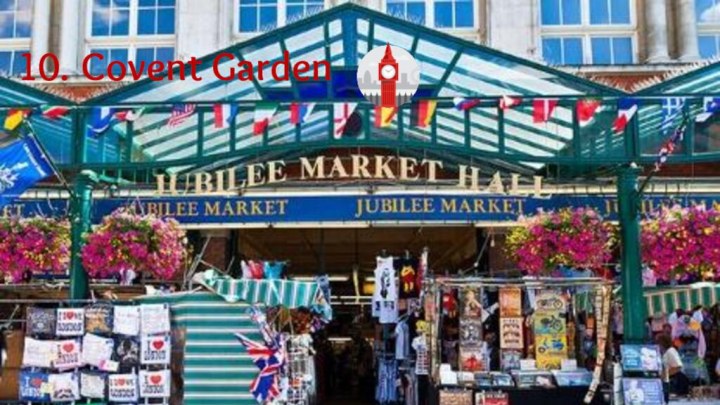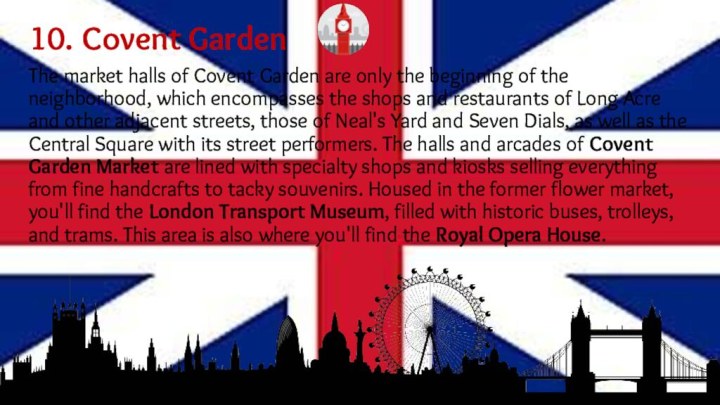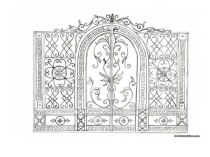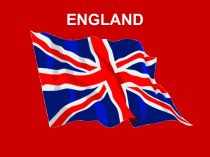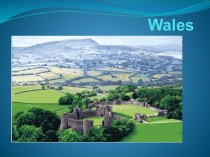Слайд 2
“London is the capital of Great Britain” -
these words can be found in every English language
textbook. Actually, London is not only the capital of Great Britain, but the capital of British Commonwealth, which includes 53 independent countries!
If you’re trying to decide what to see in London you could well find yourself spoilt for choice. With so much on offer, it can be hard to find the best places to visit in London when you’re on a tight schedule. The city is filled with historical and modern-day attractions fit for even the most frugal of travelers. London simply has so much to see!
Слайд 3
1. Buckingham Palace and the Changing of the
Guard
Слайд 4
1. Buckingham Palace and the Changing of the Guard
Buckingham
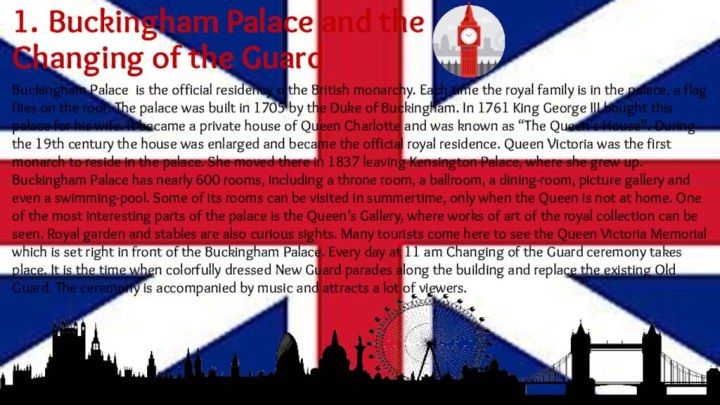
Palace is the official residency o the British monarchy.
Each time the royal family is in the palace, a flag flies on the roof. The palace was built in 1705 by the Duke of Buckingham. In 1761 King George III bought this palace for his wife. It became a private house of Queen Charlotte and was known as “The Queen’s House”. During the 19th century the house was enlarged and became the official royal residence. Queen Victoria was the first monarch to reside in the palace. She moved there in 1837 leaving Kensington Palace, where she grew up. Buckingham Palace has nearly 600 rooms, including a throne room, a ballroom, a dining-room, picture gallery and even a swimming-pool. Some of its rooms can be visited in summertime, only when the Queen is not at home. One of the most interesting parts of the palace is the Queen’s Gallery, where works of art of the royal collection can be seen. Royal garden and stables are also curious sights. Many tourists come here to see the Queen Victoria Memorial which is set right in front of the Buckingham Palace. Every day at 11 am Changing of the Guard ceremony takes place. It is the time when colorfully dressed New Guard parades along the building and replace the existing Old Guard. The ceremony is accompanied by music and attracts a lot of viewers.
Слайд 6
2. The British Museum
One of the most famous is
the British Museum in London, which was established in
1753. It’s a museum of human history and culture. Its collections are amongst the largest in the world and originate from all continents. First of all, it’s a huge library with 6 or 7 million books, which is considered to be one of the largest in the world. According to the British law a copy of every book, pamphlet or periodical published in Britain must be kept in this museum. Secondly, the British Museum is a scientific institution, known as Natural History Museum, where internationally important collections are shown. This place inspires people to think about the natural environment differently and to take better care of the planet. Finally, there is a wonderful art gallery in the British Museum housing unique collections of sculpture, ceramics, drawings and paintings. It also has a great collection of Italian drawings.
Слайд 7
3. The Tower of London and Tower Bridge
Слайд 8
3. The Tower of London and Tower Bridge
From prison
to palace, treasure vault to private zoo, the magnificent
Tower of London has fulfilled many different roles down the centuries. One of Britain's most iconic structures, this spectacular World Heritage Site offers hours of fascination for visitors curious about the country's rich history - after all, so much of it happened here. Inside the massive White Tower, built in 1078 by William the Conqueror, is the 17th-century Line of Kings with its remarkable displays of royal armaments and armor. Other highlights include the famous Crown Jewels exhibition, the Beefeaters, the Royal Mint, and gruesome exhibits about the executions that took place on the grounds. The adjacent Tower Bridge, its two huge towers rising 61 meters above the River Thames, is one of London's best-known landmarks.
Слайд 10
4. Big Ben and Parliament
Nothing says "London" more emphatically
than the 97-meter tower housing the giant clock and
its resounding bell known as Big Ben. It's as iconic a landmark as Tower Bridge. The tolling of Big Ben is known throughout the world as the time signal of BBC radio. Below it, stretching along the Thames, are the Houses of Parliament, seat of Britain's government for many centuries and once the site of the royal Westminster Palace occupied by William the Conqueror. Tours of the parliament buildings offer a unique chance to see real-time debates and lively political discussions. From Parliament Square, Whitehall is lined by so many government buildings that its name has become synonymous with the British government.
Слайд 12
5. Westminster Abbey
Another location with a long association with
British royalty, Westminster Abbey stands on a site that's
been associated with Christianity since the early 7th century. Officially known as the Collegiate Church of St Peter in Westminster, Westminster Abbey was founded by Edward the Confessor in 1065 as his place of interment. From his burial in 1066 until that of George II almost 700 years later, most sovereigns were not only crowned here but they were buried here too. More recently, it's become famous as the preferred location for Royal Weddings.
Слайд 14
6. Hyde Park
Covering 350 acres, Hyde Park is London's
largest open space and has been a destination for
sightseers since 1635. One of the park's highlights is the Serpentine, an 18th century man-made lake popular for boating and swimming. Hyde Park is also where you'll find Speakers' Corner, a traditional forum for free speech (and heckling). Another Hyde Park landmark is Apsley House, former home of the first Duke of Wellington and purchased after his famous victory at Waterloo. Now a museum, it houses Wellington's magnificent collections of paintings, including Velázquez's Waterseller of Seville, along with gifts presented by grateful European kings and emperors. England's greatest hero is also commemorated at the Wellington Arch.
Слайд 16
7. The London Eye
Built to mark London's millennium celebrations
in 2000, the London Eye is Europe's largest observation
wheel. Its individual glass capsules offer the most spectacular views of the city as you embark on a circular tour rising 443 ft above the Thames. The journey lasts 30-minutes, often quicker than the time spent queuing for your turn.
Слайд 17
8. Piccadilly Circus and Trafalgar Square
Слайд 18
8. Piccadilly Circus and Trafalgar Square
Two of London's best-known
tourist spots, these famous squares lie not far apart
and mark the gateways to Soho, London's lively theater and entertainment district. Trafalgar Square was built to commemorate Lord Horatio Nelson's victory over the French and Spanish at Trafalgar in 1805.Nelson's Column, a 56-meter granite monument, overlooks the square's fountains and bronze reliefs, which were cast from French cannons. Admiralty Arch, St Martin-in-the-Fields, and the National Gallery surround the square. Piccadilly Circus marks the irregular intersection of several busy streets - Piccadilly, Regent, Haymarket, and Shaftesbury Avenue - and overlooking this somewhat untidy snarl of traffic stands London's best-known sculpture, the winged Eros delicately balanced on one foot, bow poised. "It's like Piccadilly Circus" is a common expression describing a busy and confusing scene.
Слайд 20
9. St Paul's Cathedral
The largest and most famous of
London's many churches - and undoubtedly one of the
most spectacular cathedral's in the world - St Paul's Cathedral sits atop the site of a Roman temple. The previous church structure was destroyed in the Great Fire of 1666, and Sir Christopher Wren designed the re-build. Today, the twin Baroque towers and magnificent 365 ft dome of St Paul's are a masterpiece of English architecture. If you're up to it, be sure to walk the stairs with their spectacular views of the dome's interior, including the Whispering Gallery.
